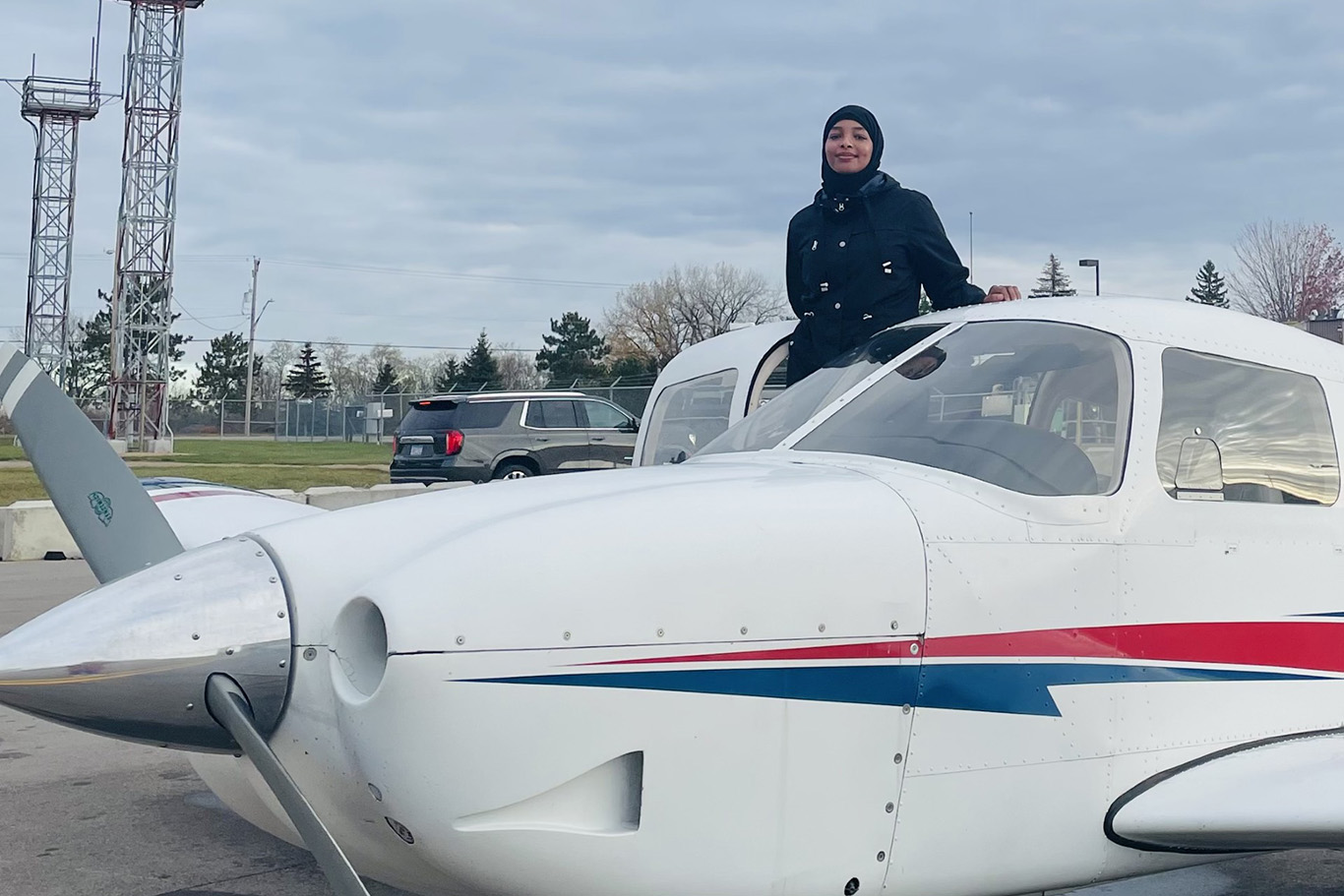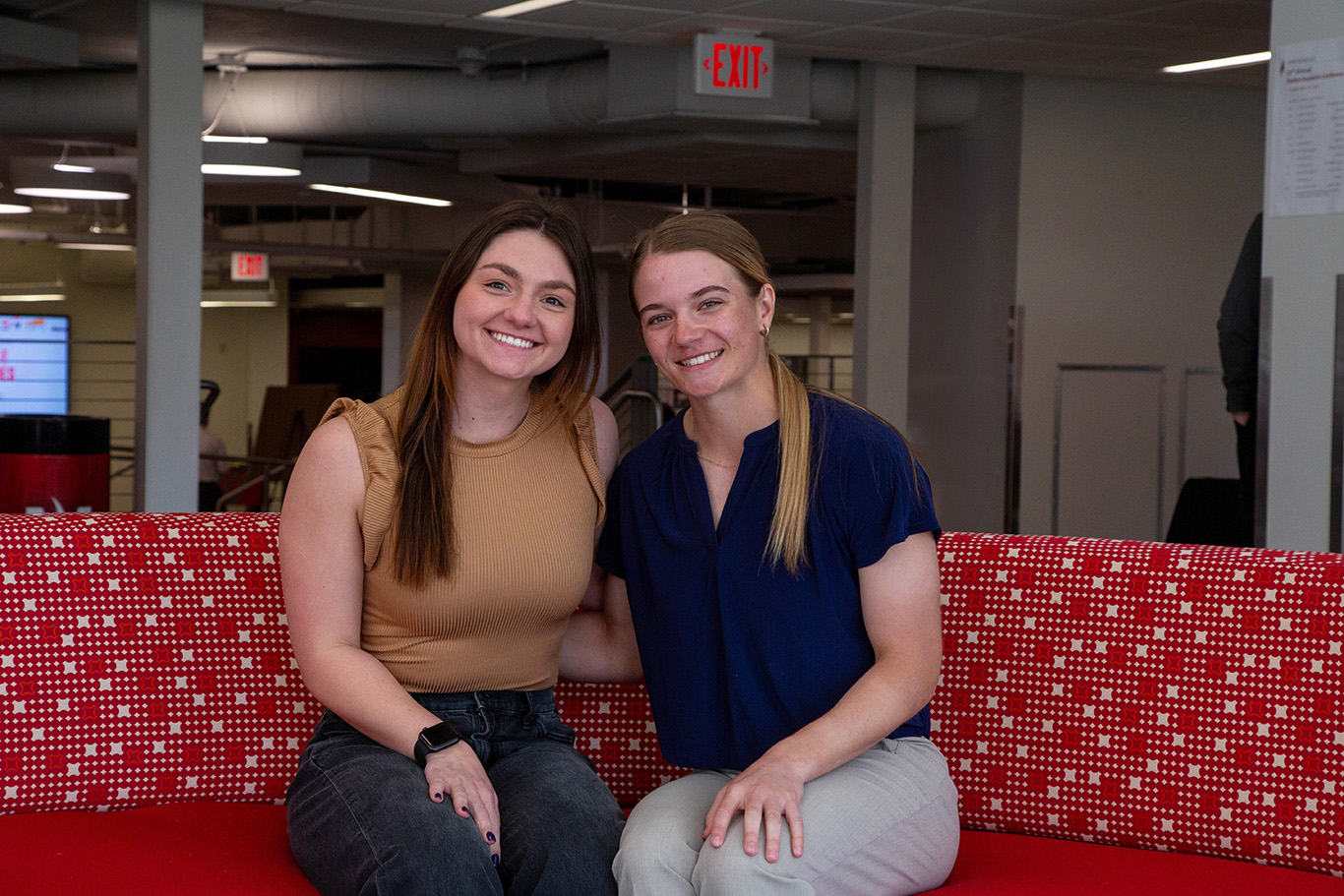Health Advocates
They may not be seated directly at your bedside holding your hand or administering an IV, but health advocates are found every step of the way, assisting in the background work in various capacities, spreading awareness, and fighting for funding. Oftentimes, health advocates have been directly affected through loved ones of their own. For these three Dragons, getting involved and spreading the message of hope and help is yet another way they can impart dignity and love to those directly affected.
Connecting Through Compassion
Oftentimes, the most painful parts of our lives redirect our passions. In 2013, Lonna Whiting ’04 and ’07 (English and MFA in creative writing) received news that would forever change her life. Her mother was diagnosed with early onset Alzheimer’s disease at the age of 61.
The writer, who was already discovering her growing interest in healthcare writing, took to the pen to help with the pain.
“It really sidelined us. It’s just a terrible experience, and one of the coping mechanisms I had was turning her diagnosis into a way to communicate about the disease,” Whiting said.
Alzheimer’s disease is a progressive mental deterioration. It’s the product of degeneration of the brain. What the scientific definition of it doesn’t mention is the devastating agony loss of memory inflicts on the sufferer and their loved ones. Faces are forgotten, and confusion accompanies every move. What was once accomplished alone cannot be done without help from others, and so many moments are laced in fear of the inevitable future.
“The bottom line is it isn’t a normal way of aging. It’s a disease and it’s fatal,” Whiting said. “I think it’s one of the worst ways to die. Everybody says it’s worse on the family, and that’s not true at all. I mean, my mom knows she has Alzheimer’s. She knows what’s happening to her. Eventually, I hope she doesn’t. Hopefully, there will be advancements and more funding. There’s going to be a huge wake-up call because it’s a very expensive disease.”
For some patients nearing the end, it can cost up to $10,000 a month for assistance and other medical expenses. “If your family has money, you have to use it. If your family doesn’t have money, you benefit from Medicaid, but they will take every dollar that you have.”
Whiting’s column, which appears occasionally in the Forum, connects with those suffering from the disease – friends, family and the diagnosed. The columns soon spread far beyond Fargo, sometimes being shared over 10,000 times online.
“I think my advocacy in the writing I do brings people together, and it does provide some peace because with dementia and Alzheimer’s, it’s a constant grieving process. It’s a perennial grief.”
Along with her writing for the newspaper and its website, Whiting has been actively involved with the Alzheimer’s Association of North Dakota, even traveling to Washington, D.C., to march and let our nation’s leaders know how grossly underfunded this disease is that affects 46 million people worldwide.
“As a daughter of someone who’s suffering from the disease, it empowers me to educate others and inspire them to just talk about a family member who has the disease and maybe provide a little bit more dignity in their lives – to let them know they’re not alone.”
Every year, 14,000 people die from Alzheimer’s disease in North Dakota, and that’s not counting the people left behind. “It affects entire families,” Whiting said knowingly. “There are a lot of complicated aspects about it – financially, emotionally, physically, mentally. It’s something I call a family disease.”
Whiting’s advocacy for the disease and its sufferers goes beyond the written word. Her ability to communicate, connect and reassure a complete stranger often makes her feel like their close friend when others surrounding them don’t understand.
“I’ve gotten mail from the state penitentiary from an inmate who just wanted to thank me. He explained that his grandfather had Alzheimer’s, and his grandpa was like a dad to him. It was a very sweet letter.”
Through her writing and events, Whiting allows people to feel what they need to feel, when they need to feel it. Three years ago, Whiting started a local fundraising event for the Alzheimer’s Association called Brains on the Plains that occurs every June. This community rally continues to grow every year as it supports and raises money for those suffering from the third-leading cause of death in North Dakota.
“Through all of the mentors and teachers and time I had at MSUM with the writing intensive program, it’s come to fruition with my advocacy work. I feel really proud to be a Dragon,” Whiting said.
Unlike many who develop Alzheimer’s, Whiting’s mother showed few signs of the disease before she was hit with an onslaught of indicators and is already facing an advanced stage in just three years since her diagnosis.
“It’s gone really slowly and quickly at the same time. Her symptoms came on really quickly. It wasn’t over the course of several years,” Whiting said. “Until the day she was diagnosed, she was watching kids. She was very high functioning, and then, suddenly, something in her brain just shut down. It plateaus and goes down, plateaus and goes down.”
Since her mother’s diagnosis, Whiting has not only been one of her mother’s main caretakers. She has helped hundreds of readers affected by the devastating disease through a relatable lens of compassion, understanding and knowledge.
“Yeah, it’s been quite the journey, and I’ve gone through the gambit of grief, and I go through it every time something changes in her, but it’s through the writing and my advocacy that it makes me feel better about the crappy situation we’re in.”
Although funding has lacked for Alzheimer’s research, one thing scientists do know is that leading a healthy lifestyle with diet and exercise is vital in preventing the disease and nourishing the brain.
“They’re learning more and more about what’s healthy for the heart and the brain,” Whiting said. “Eating well and exercising will do so much more than doing a crossword puzzle every day. One researcher said you can do Sudoku until you’re a genius at it, but that just means you’re good at Sudoku. It doesn’t mean you’re protecting your brain. The proven preventions are diet, exercise and learning new things, so challenge yourself, especially at an older age, to learn the piano or learn a new language. Do things with your opposite hand. There are all sorts of weirdnesses you can do to exercise your brain.”
It can be easy to support others when the process begins, but Whiting encourages everyone to remember those affected as the months or years pass on.
“When my mom was first diagnosed, people rallied for her, and now it’s me, my boyfriend and a couple of friends,” Whiting said. “Everybody’s disappeared a little bit, almost like she’s already gone, but she has so much spirit left. She’s lost a lot, but she does everything that’s important, which is to laugh, hug, and love. People are missing out on that. There are so many others who have that same spirit, and it’s never going to go away.”
Becoming an Advocate
You don’t have to be directly affected by the disease in order to be a health advocate. Whiting encourages others to participate in Walk to End Alzheimer’s, a fundraiser held nationwide every September. The Longest Day, sponsored by the Alzheimer’s Association, is held annually in June and is another fundraiser.
“It’s a fatal disease that is not a normal way of aging. Just hammer that into people’s minds. That would make a significant impact as to how we advocate for the disease,” Whiting said. “Visit a memory care unit and see what’s going on there. How would you, if you were in that position, want to be treated, and what would your cure model look like? Let’s make that happen in our communities.”
For more information on Alzheimer’s awareness, visit alz.org.
Providing Help for the Helpless
After experiencing roles in the banking and sales industries, Deb Gemar ’86 (psychology and criminal justice) began her job as the director of marketing and development at Hospice of the Red River Valley six years ago and fell in love with nonprofit healthcare.
“My intent was to go to law school, and that didn’t happen,” Gemar said, “but that’s OK because I’m in a place that I wouldn’t change for the world. You’re always learning and moving forward, and especially when you’re at a nonprofit for healthcare, there’s really a passion behind it.”
Gemar speaks with people regularly about two subjects most would rather avoid: money and death. With difficult topics like those, it’s not surprising that grace, compassion and knowledge are requirements for the role.
“Sometimes I’m speaking to groups of people that have a loved one, a friend or a neighbor that is facing a very serious illness, and it’s really about being able to talk to them in advance of what the process might be and educate them about what it is that hospice has to offer,” Gemar said.
As hundreds of families have experienced, Hospice provides comfort and care to anyone with an incurable illness and assists them during their last weeks and months of life. With a mission to make the quality of their patients’ lives as pain-free as possible, they are like good Samaritans for the helpless, addressing medical, emotional, and spiritual needs. But the help doesn’t end with the patients.
“In the development world, I’m talking to a lot of people who were the ones left behind. One of the things I hear over and over again is how they wished they would’ve called us sooner,” Gemar said. “That always breaks my heart because then they go into all the great things that happened and the things they didn’t know we were going to help them through. They’re so appreciative of it.”
If you’d like to learn more about Hospice of the Red River Valley, visit hrrv.org.
This story was first published in Moorhead Magazine, Fall 2016.
Make Sure Your Story Is Heard
Let us know how your life has been changed by being a Dragon: tell us your MSU Moorhead story today!
Send Us Your Story


